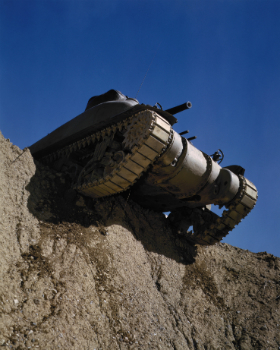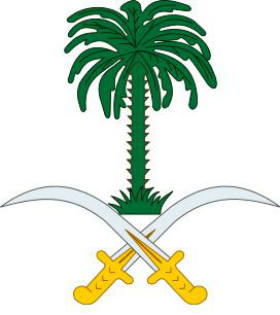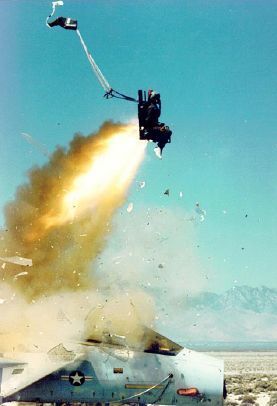Thomas E. Ricks's Blog, page 55
March 20, 2014
Brig. Gen. Sinclair's light sentence is likely to be a disaster for the military

The lack
of any prison time for Brig. Gen. Jeffrey Sinclair in
the sexual assault case is a severe setback for the military's efforts to retain
control of the military justice system.
Even enlisted soldiers are likely to be angered by the light
treatment the general got.
Rigor in PME: What I am talking about

In the course of an e-conversation with some friends the other day,
I rounded up my thoughts on how to improve PME. It is a good nutshell summary,
so I'll share it here:
They used to have class rankings at
Leavenworth, publicly released, and it mattered who was no. 1. When Ike was
first in his class, people paid attention. Now it doesn't matter, because CGSC
has lost its "currency." If it mattered, people would pay attention.
But you'll only get this with genuinely rigorous education:
that teaches clear thinking,
that requires clear writing, and
lots of it,
that has class rankings,
that probably gives preferential
treatment to the top 10 percent and tells the bottom 10 percent that they are
on thin ice,
that ejects students for
plagiarism, and makes it public,
that perhaps fails the bottom 5
percent of the class, giving them no credit for the year of any sort.
10 ways to turn around a failing company

I read over this list by a
McKinsey guy and wondered how many of these tips are applicable to combat
operations.
I don't think many.
(HT to DE)
Not everyone's World War II was hell: E. Waugh, living large in Yugoslavia in 1945

I
was checking something about the damnable Randolph Churchill in the letters of Evelyn
Waugh
and noticed that in January 1945, Waugh wrote to his wife Laura from Dubrovnik
that "I do not think there is any military appointment so congenial -- good
architecture, good food, wine, blameless life, and for once in my life a sense
of being very popular." (The novelist's mission was distributing food to the
needy, but he slipped a lot of it to Catholic religious organizations who were
being persecuted by Tito's Communist partisans.)
BTW,
Waugh's Scoop is still the best novel ever written about
being a war correspondent. Also the funniest. His novels about World War II are
also good.
March 19, 2014
A cranky book on American diplomacy, offering a pungent view on Benghazi

Laurence Pope, a career American diplomat, has
written a cranky little book, The Demilitarization of American
Diplomacy: Two Cheers for Striped Pants. It has some
faults, upon which I prefer not to dwell. (But just for minor examples, George
Marshall's last name has two "L"s, and I don't think John Winthrop's flagship,
the Arabella, was a sloop.)
Instead, I recommend the book for the pungent
observations sprinkled through it, in imitation of the
aphoristic style of La Rochefoucauld:
"[T]he prevailing American diplomatic style
is blunt to the point of arrogance."
"The Louis Quatorzieme version of American
exceptionalism was the divine right of kings."
"The State Department's foreign policy
functions have largely migrated to a National Security Staff at the White
House, an off-the-books agency impervious to Congressional oversight and public
scrutiny.... It is operational to a fault."
"The American military ... lives to plan, and
ideas are important to it."
"The real revolution in American military
affairs was the recognition of the ancient truth that war is a branch of
politics."
Because of Assange and other leaks, some of
the most important communications nowadays are "conducted by e-mail or back
channels."
The cyberworld has "a strong bias toward
anarchy."
"In a world where information moves with the
speed of thought, the issue is usually not what is happening, but what should
be done about it."
"Dwight Eisenhower was perhaps the last American
president who understood the making of strategy."
As for Benghazi, Pope has an interesting view,
given that he was the temporary replacement in Tripoli for the murdered
ambassador, Chris Stevens. Pope alleges that the coverage of the incident -- presumably
Fox's -- was "vile partisan agitprop." He doesn't elaborate.
Saudis now fighting in Anbar?

I see this report that four
Saudi citizens were killed fighting government forces in Anbar province. I
remember lots of articles about Saudi support for Sunni insurgents, but I can't
remember Saudi citizens being killed before.
As for Iraq, I asked Joel Wing what up, and he responded
that there is a new wave of foreign
fighters there.
I can't imagine what it must be like to be a Sahwa leader living
in Samarra nowadays. Their numbers are decreasing.
2 AF commanders in Europe ejected, CIA ousts head of Iran desk for being mean

Issue seems to be inability to command well,
which is a step forward from the zipper/gambling/cheating/loose nuke issues
that have hit other AF officers.
Meanwhile, the head of the CIA's Iran desk was sent
home for being a lousy boss.
March 18, 2014
FoW (no. 19): Who cares about the future of war? Let’s focus on the future of peace!

By
John Byron
Best
Defense future of war essay contest entry
The
inevitability of war and the design of the best military for fighting war are intrinsic themes
in this series on the future of warfare. I judge that a giant flaw, positing as
it does a false duality for the American military: war or not-war. We shouldn't
ignore the third realm, the theoretical and historical middle ground in which
the military is shaped, trained, equipped, and operated to prevent war.
The
Navy and the Marine Corps understand well this world of peacekeeping and war
prevention. Here's a CNA study of the Marine Corps's role in 154 humanitarian
and peace operations through 1993: A Chronology of US Marine Corps Humanitarian Assistance
& Peace Operations. Here's another, looking at the 207 U.S. Navy
crisis-response operations short of war between 1946 and 1982 (in 140 of these
instances aircraft carriers were the central force element): The Use of Naval Forces in the Post-War Era: U.S. Navy and
U.S. Marine Corps Crisis Response Activity, 1946-1990. These statistics can
be brought up to date and paralleled with similar (but likely shorter) lists
for the U.S. Army and U.S. Air Force to build an excellent case for shaping our
future forces as much for keeping the peace as for wartime combat.
Doing
so, however, might prove painful for the Army and Air Force chauvinists who see
need for a big-war boogeyman to justify the kind and size of military force
that favors these services. The Soviets were once 10 feet tall and now the
Chinese must be seen as bent on military domination of the entire world if
we're to sustain the heavy, over-built but under-capable military machine
desired by both these services. Otherwise how do they stay in the game bulked
up to the size they desire rather than building light and mobile forces,
supporting SOF, deferring to diplomacy and naval force for rapid response, and
settling for a force-in-being strategy relying on reserves, conscription, and
the arsenal of democracy to get us up to full big-war footing in time to fight
(or better, prevent) major combat?
On
February 27, the Washinton Post
published a superb essay by the redoubtable Andrew Bacevich arguing for a
smaller Army: "Do we really need a
large Army?" I commend it to you as rationale for future
forces shaped to keep the peace and prevent war rather than for actually
fighting one as primary response to all situations. Bush's Global War on Terror
got us wildly off track, premised as it was that the American military was the
sure cure for terrorism and the direct application of massive military force
our primary instrument to deal with real and potential threats outside our
borders. Well, we've made a colossal cockup of Afghanistan, and Iraq is nothing
close to our intentions. With overwhelming military force we've failed in two
wars. War didn't work. War doesn't work. It's a bad last option.
Preventing
war, that's the wise path. We should shape our future military with that as its
primary purpose and rely on our industrial power and wit to build us up and
protect us if in the future we have to react to a (wildly improbable) actual
military threat to our vital national interests.
Churchill
said that "to jaw-jaw is always better than to war-war." Nailed it, he did, and
described the best future of warfare: peace.
Captain John Byron USN
(Ret.) is Best
Defense's resident peacenik.
Is this the best book on Putin?

The
best text on Putin and why he does what he does may be The Theory and Practice of Oligarchical Collectivism, by Emmanuel Goldstein.
It
is hard to find, though.
Last week's post got the The Basic School's commandant all wrong

By John M. Dowd
Best Defense guest
respondent
The picture you painted
of Colonel Desgrosseilliers in your blog is distorted, misleading, and terribly
unfair. You ought to pull it down.
It is clear you did not talk to Colonel Degrosseilliers, even though you have
been a recent guest at TBS before you published incomplete, stolen information
taken entirely out of context from a command climate survey the colonel asked
for, participated in, and responded to the way any outstanding commander of
Marines would do.
Thus, your readership has been badly misled and the reputations of our finest
Marine officers have been defamed by your deficient publication of their
leadership. What you fail to understand and failed to convey to your readers is
that great commanders instigate surveys to find out what the climate is in
their command. Then they act on what they learn and improve the quality of
their command. That is what happened at TBS.
I have attached a paper written last summer about the climate at TBS you may
find interesting, which paints a different picture.
Further, this month's Marine Corps
Gazette has an editorial by John Keenan and article Col. Desgrosseilliers
wrote with Lt. Col. Hoffman about the changes at TBS.
In either event, your portrayal is inaccurate and unfair based upon my personal
experience dealing directly with Col. Desgrosseilliers over the past year with
a very difficult issue involving one of his officers, Capt. James V. Clement,
wrongly accused in the V32 cases. The colonel stood by his captain, lent his
combat expertise to the preparation of the defense, and testified as an expert
witness at the board hearing -- all in the face of superior authority wanting
to hang the captain. Through his actions, the colonel was completely and utterly
faithful to this fine young captain, even when his entire career and future was
on the line. He did not blink because he selflessly did the right thing for a
fellow Marine.
His brilliant example during the past year taught those young officers at TBS
more about leadership than all the lectures they received for a year. I hope
you will demonstrate the same kind of class, and publish this note, or better
yet pull down the blog.
John M. Dowd
, a
former Marine officer, is a lawyer specializing in white-collar defense.
Thomas E. Ricks's Blog
- Thomas E. Ricks's profile
- 437 followers



